Introduction to Buddhi-Yoga, The Art of Work
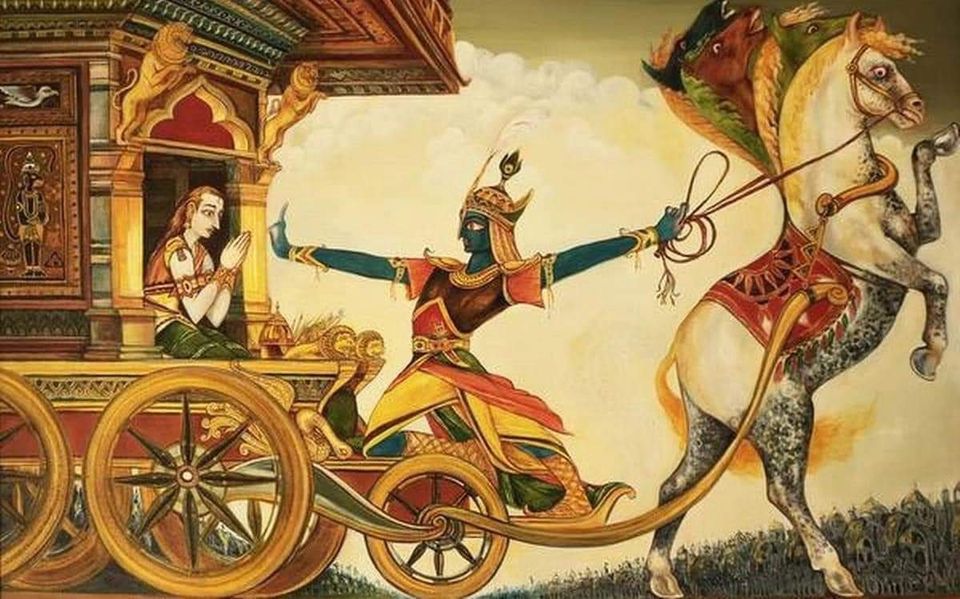
Chapter 2 Passage 5 (2.40-46)
- Krishna implicitly prepared the subject of karma-yoga (called buddhi-yoga in this chapter)— that seeks to reconcile an inner and outer domain of being— by speaking about an inner-self (2.11-30) and an outer-self (2.31-38).
- Having prepared it, Krishna officially introduces the subject (in 2.39-46) by first calling it buddhi-yoga, i.e. the yoga of the intelligence [2.39] and contrasting it with the teaching on sankhya (lit. counting) which deals with the discernment between consciousness and body and was encountered in 2.11-30. Perhaps because the discernment (buddhi) requires performing social acts for a purpose other than the fruit of those social acts (and not just an abstract discernment between body and atman), Krishna has called it a yoga of intelligence
- Krishna juxtaposes the intelligence of this (buddhi-)yogin and the ordinary person by calling the former resolute and the latter impotent (due to being ‘many-branched’ because of so many desires to be fulfilled) [2.41]. The resolute intelligence is for attaining samadhi [2.42] where as the impotent intelligence is divided amongst many desires to be fulfilled [2.42-44]
- Krishna rebukes the impotent intelligence tied-up in Vedic ritual (which has as its purpose earthly and celestial enjoyment) because it concludes “there is nothing other than this” [2.43] thus denying a whole domain of being, viz. the inner domain pertaining to spirit and spiritual realization
- Krishna’s rebuke also serves to contrast the buddhi-yogin and the ordinary person who both participate in social life, and therefore look exactly the same conventionally speaking although like day and night internally [2.69].
- Krishna encourages Arjuna to go beyond the world of three-gunas (i.e. work for earthly and celestial enjoyment), although 3/4ths of the Vedas (the basis of the social world for Arjuna and Krishna), deal with precisely that. Rather, Arjuna should work for attaining samadhi (nistragunya).
- In this work (of buddhi-yoga) there is no loss for incompletion or diminution for imperfect execution (presumably contrasting it with ordinary social dharma) and can protect one from the “greatest fear” [2.40] which is presumed to be “the bondage of karma” spoken of just one verse before [2.39].
- Krishna having introduced the topic goes on to describe it in brief
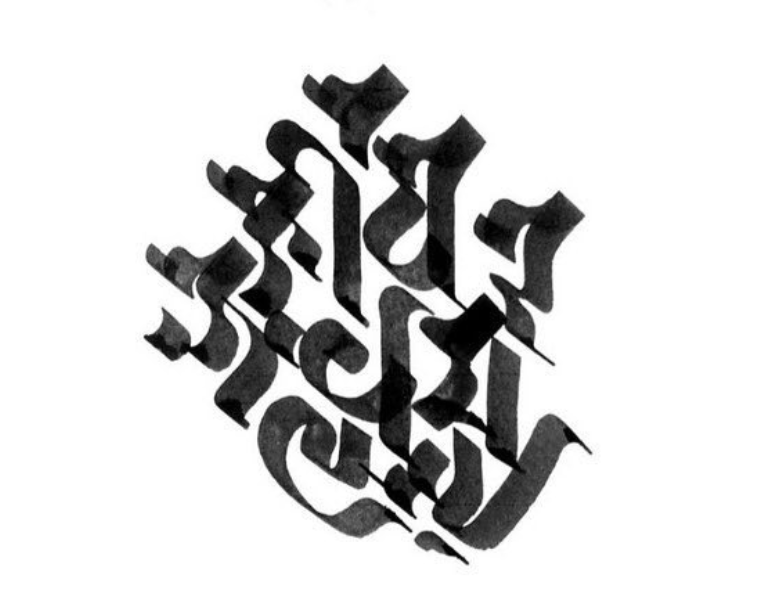
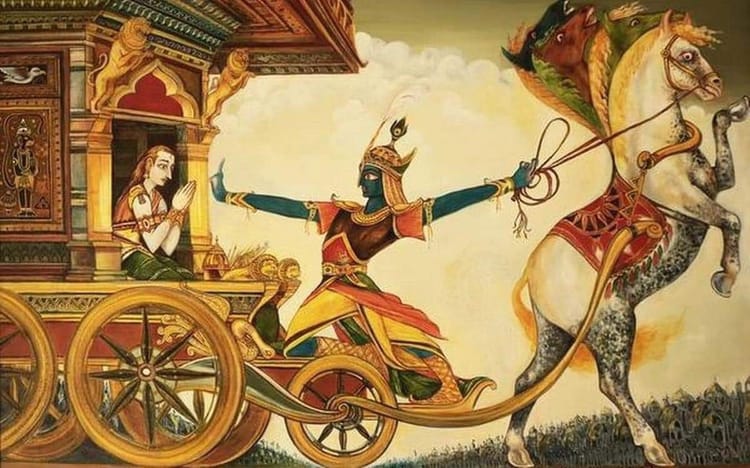
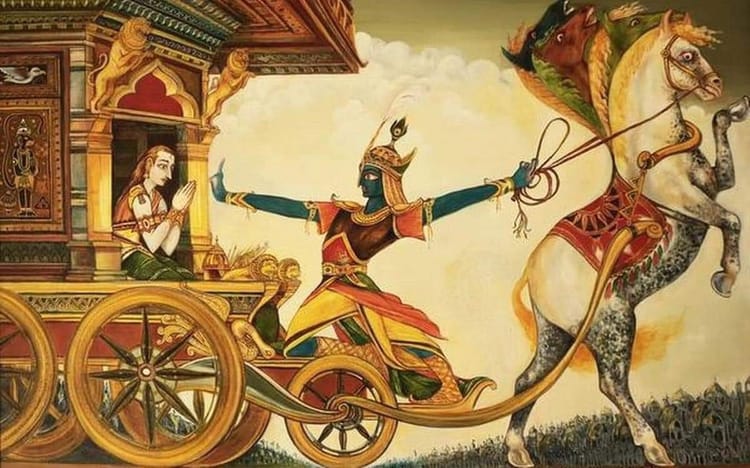
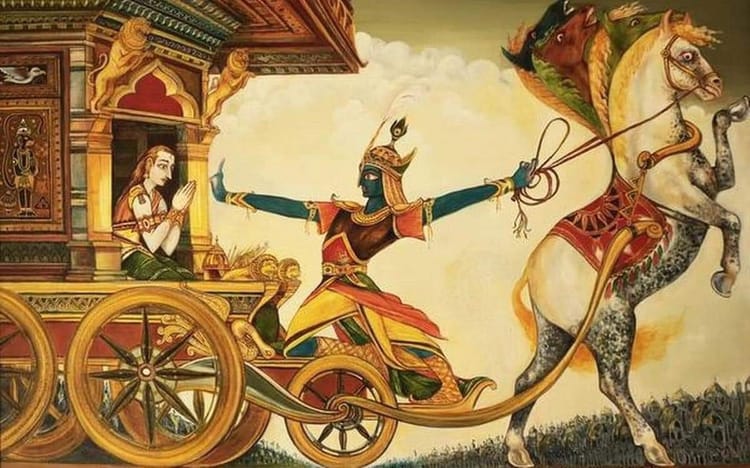
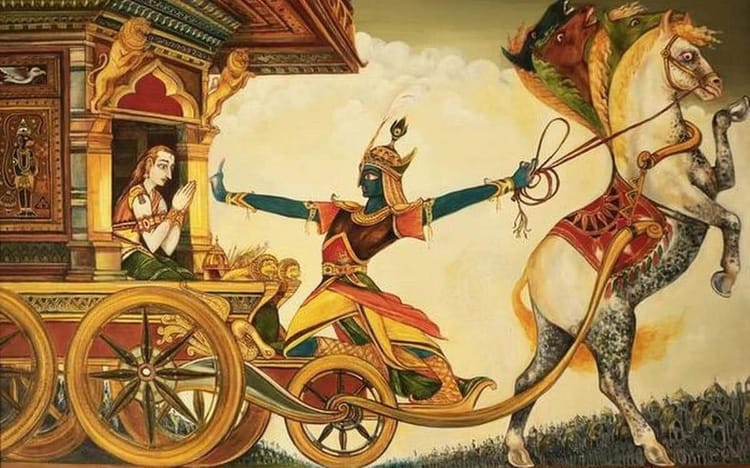
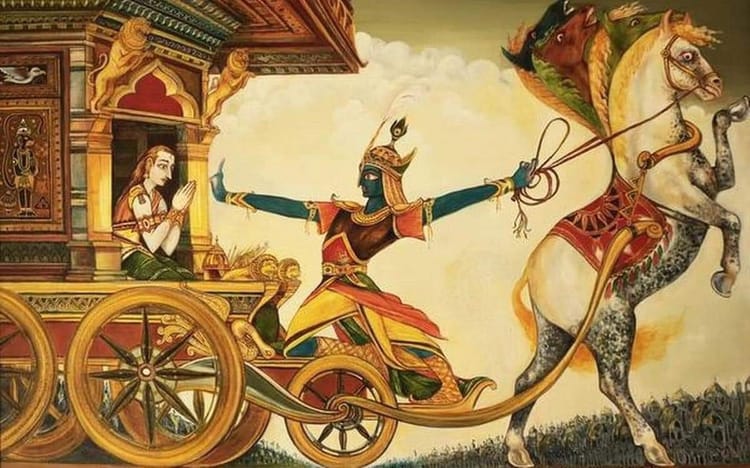
Member discussion